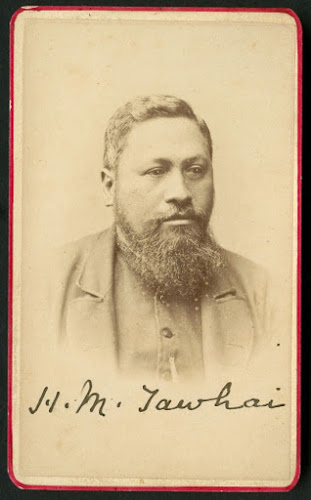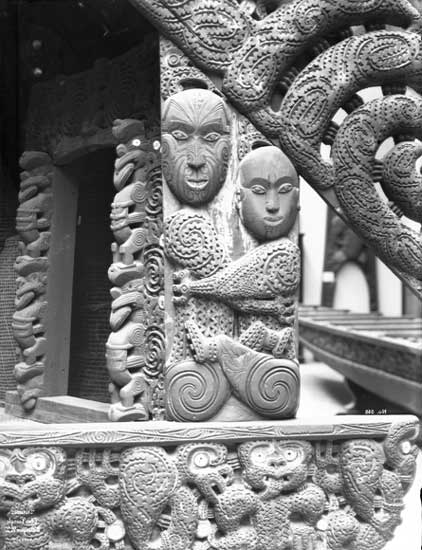'I am an Irishman': Irish and Māori Historical Connections
It turns out Māori had a different story to tell concerning the history of
their relations with the newcomers. In recent decades New Zealand historians
have played their own part in deconstructing these myths. Most historians now
acknowledge that the Treaty of Waitangi had much deeper roots in British
imperial practice, while a process of painstaking historical reappraisal over
the last four decades (most especially through the Waitangi Tribunal claims
process) has seen the ‘best race relations’ shibboleth well and truly
discredited.
 |
| Hone Mohi Tawhai (PA2-0771, ATL) |
Although it was a less common destination for travel, Māori
increasingly drew on the Irish comparison, seeking and finding parallels in the
situations of the two peoples. In 1879 the Northern Māori MP, Hone Mohi Tawhai, told Parliament that ‘I
have heard of the people of Ireland, and the circumstances under which they
were placed are very similar to the circumstances under which the Maoris are
now placed. There were certain laws passed affecting their land, and it
resulted in those people being deprived of their land. And now the same laws
are being brought to bear upon us’. He went on to declare solidarity even more
emphatically with the people of Ireland, stating ‘I am an Irishman’. As the New
Zealand Herald newspaper reported a few years later, Māori were remarkably well
informed about the Irish situation and appeared ‘to consider their grievances
similar to those of the Irish people’.
For many Māori the Home Rule model that was advocated for Ireland offered a
solution to their own woes, especially in areas like Te Urewera where the
tribes retained sufficient contiguous lands in order to make some kind of
self-government under British sovereignty feasible. When an Urewera District Native Reserve Act was
passed by Parliament in 1896 it was framed by some observers in terms of
providing for Home Rule. At the same time an unofficial Maori Parliament that
emerged during the 1890s also demanded Home Rule, with one member predicting
that it might take ‘up to 30 years – like the Irish seeking home rule for
themselves’.
Irish nationalists, for their part, had long drawn similar parallels and
Michael Davitt wrote sympathetically of the Māori prophet and resistance
movement leader Te Whiti-o-Rongomai
after visiting New Zealand in 1895. Settlers in New Zealand sometimes made the
same connection but in an entirely negative light. Thus Te Whiti’s followers
(who ploughed and fenced lands confiscated from them in defiance of
authorities) were compared with the contemporaneous Irish National Land
League’s ‘No Rent’ advocates and an implacable response demanded in both cases.
 |
| Irish National Land League 'No Rent' Poster |
Imperial comparisons were being made both in order to advance the colonising agenda and to push back against it. And just as both Māori and the settlers in New Zealand compared their own situation with that of other parts of empire, so did Irish nationalists and others highlight events in New Zealand for the purposes of drawing parallels with their own circumstances. For much of the twentieth century scholars tended to ignore making meaningful comparisons of their own in favour of the notion of New Zealand as an exceptional experiment in humanitarian colonisation.


Excellent piece! Hadn't known about the Tawhai speech. "I am an Irishman!"
ReplyDeleteOnce saw a newspaper cutting which gave one of Tawhiao's (or was it his father?) names as "Inca" which suggested identification with the colonised in the Americas.